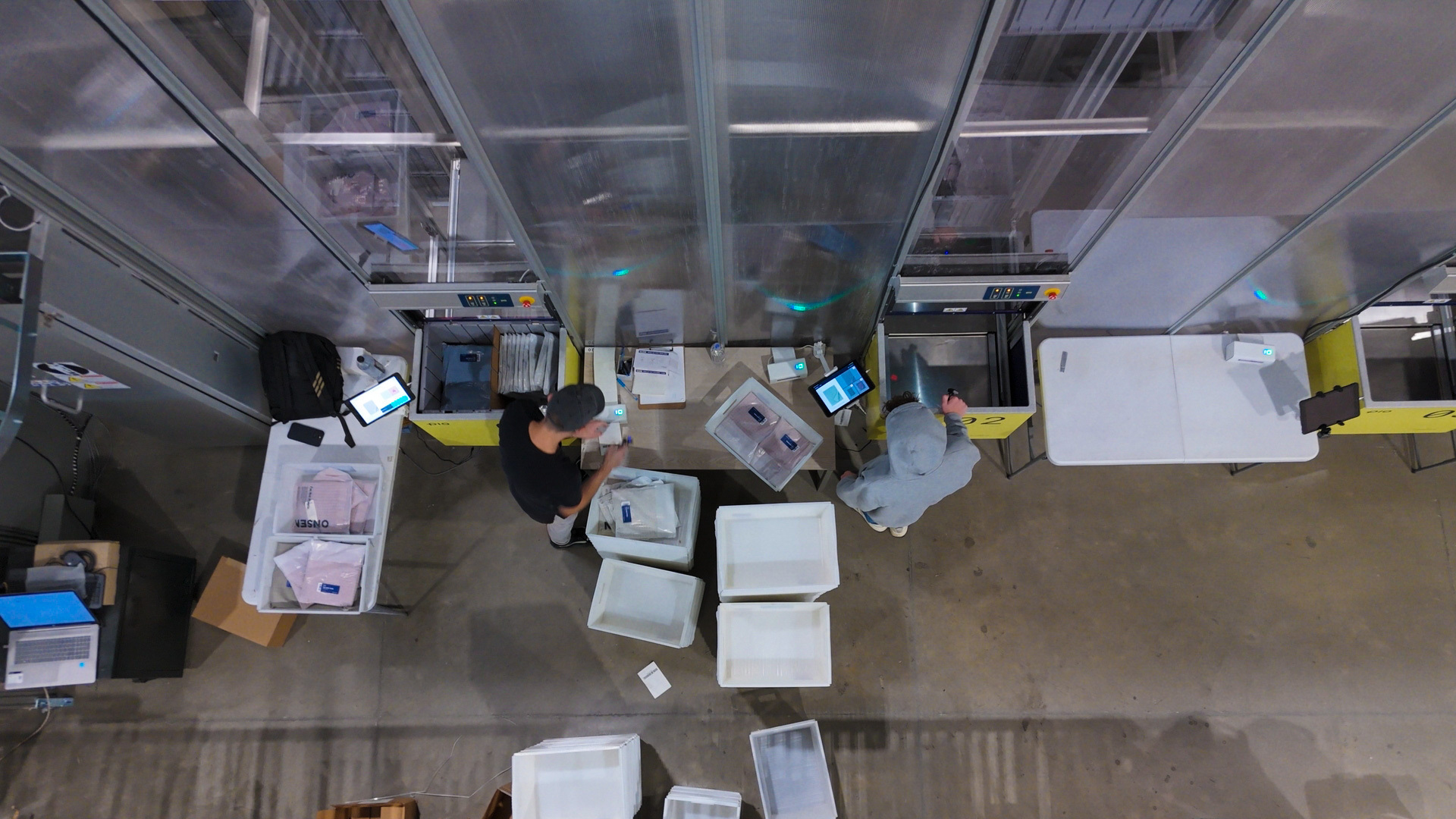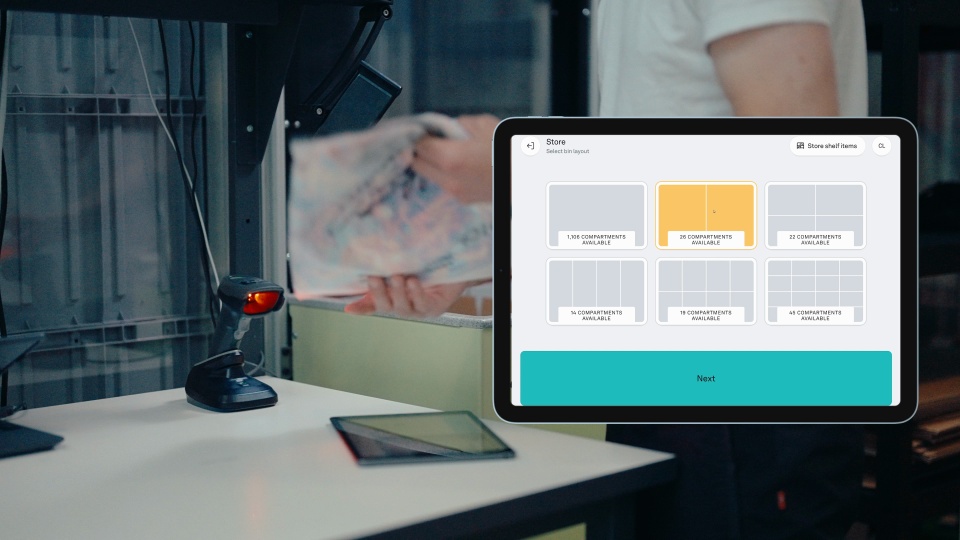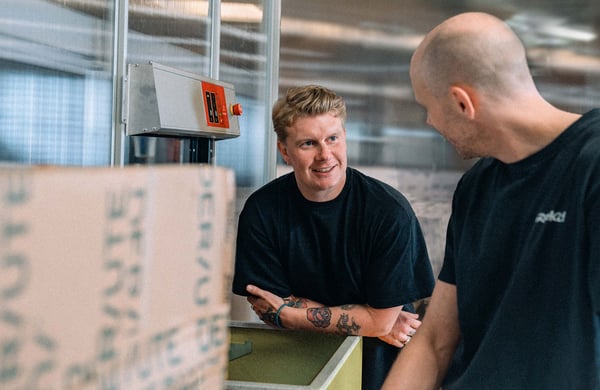Then growth kicks in. Orders pile up, and what once felt simple starts eating away at time and space.
Maybe that’s when you turned to Amazon FBA or another outsourced fulfillment service. It made sense then: someone else handled storage, packing, and shipping so you could focus on building your brand. Orders went out fast, customers were happy, and everything ran smoothly.
But as your business scales, the cracks start to show. Fees climb. Visibility fades. Your packaging looks like everyone else’s.
That’s when many teams start asking the same question: could we handle fulfillment better ourselves? More often than not, the answer is yes.
From outsourcing to ownership
Outsourced fulfillment, whether it’s FBA, ShipBob, Shopify Fulfillment, or another 3PL, is a great launchpad. It gives small teams access to serious logistics muscle and frees up time to grow.
But growth changes things. What once felt like the easiest way to scale starts to limit what you can do.
- Fees multiply as you ship more
- Flexibility disappears when you want branded packaging
- Data visibility fades across channels
- Adapting to peaks becomes harder, not easier
At some point, convenience starts costing more than control. That’s when many teams start bringing fulfillment closer to home, not the old way, with dusty aisles and forklifts, but the new way: clean, compact, and automated.
What in-house fulfillment looks like now
Bringing fulfillment in-house doesn’t look like it used to. Think less noisy warehouse and more well-designed workspace, organized, compact, and built around automation that quietly keeps everything moving.
A great example of this is cube storage. Products sit in bins stacked neatly inside a modular grid while robots glide across the top, lifting and delivering each bin as orders come in. Behind the scenes, smart software keeps every move in sync so your team always knows what’s where.
The result is a space that runs with calm precision:
- Up to 10x more storage capacity in the same footprint
- Faster, more accurate order picking
- Real-time visibility into every item
- A cleaner, quieter, and more productive place to work
It’s fulfillment that finally works as smoothly as the rest of your business.
Why more teams are making the move
For many growing brands, automation has gone from a nice-to-have to a natural next step. What used to be complex and costly is now accessible, fast to install, and built for smaller spaces.
That’s where solutions like Pio come in, built to give small and medium-sized businesses the same speed and accuracy as enterprise warehouses, without the heavy price tag or long setup.
1. Predictable costs
Outsourced fulfillment often hides costs behind storage, handling, and seasonal fees. Automation brings those costs into clear view.
With Pio, you invest once in the hardware, including the cube grid, ports, and setup, then pay a monthly subscription that covers the robots, software, and ongoing support.
To put it in perspective, a Pio P100 costs about as much as a new company car, but one that doesn’t need fuel, servicing, insurance, or parking space.
2. Faster fulfillment
When robots handle the picking, your team can focus on packing and sending. Orders move from click to ready in seconds, not minutes.
The result is more orders shipped per hour, fewer mistakes, and happier customers, even when demand spikes.
3. More time for the work that matters
Automation isn’t about replacing people. It’s about giving them time back.
When the repetitive tasks are off their plate, your team can focus on the work that actually moves the needle. Like growing your brand, launching campaigns, improving the online store, or making sure customers feel taken care of.
It’s the kind of calm behind the scenes that lets your business grow smarter, not just busier.
4. Scales when you do
Growth shouldn’t mean chaos. With Pio, scaling stays simple. During peak season, you can add more robots to increase capacity, and when things slow down, scale back just as easily.
It’s flexibility that grows with your business.
What small teams are proving
Across ecommerce and retail, small and mid-sized businesses are showing that automation isn’t just for enterprise operations anymore.
Fashion brands are shipping faster without moving into bigger spaces. Retailers are meeting next-day delivery expectations with leaner teams. Even 3PLs are using automation to serve multiple clients more efficiently.
Whether they started small or were already growing fast, these teams found systems that fit their size, goals, and pace.
You can see it in brands like Vakre Vene, who scaled faster and smoother with automation built for businesses like theirs.
That’s what in-house fulfillment delivers. clarity, control, and calm that grow with you.
Outsourced fulfillment vs automated fulfillment
Not all fulfillment solutions are built the same. Here’s how outsourced fulfillment stacks up against automated in-house fulfillment:
Bringing automation within reach
Automation used to be something only enterprise warehouses could afford. Not anymore.
Solutions like Pio make it accessible for growing ecommerce, retail, and 3PL businesses that want control without complexity.
With plug and play cube storage, Robots-as-a-Service pricing, and installations measured in weeks, Pio makes fulfillment simple to run, easy to scale, and surprisingly affordable.
You’ll know it’s time when your current setup starts slowing you down, costs keep rising, your team feels stretched, or you’re constantly reacting instead of planning ahead.
A few signs it might be time to make the move:
- Your fulfillment costs keep rising
- You’re selling across multiple channels
- You want faster turnaround and fewer mistakes
- You feel disconnected from your own operations
If this sounds familiar, it’s time to bring fulfillment home with warehouse automation that gives you visibility, speed, and space to grow.
Still unsure if it’s the right time? Read our guide on 3 signs it’s time to automate your warehouse.
Because automation isn’t about replacing people or chasing scale. It’s about giving small teams the tools to work smarter and the confidence to grow their way.
Outsourcing helps you start fast.
Automation helps you grow smarter.






